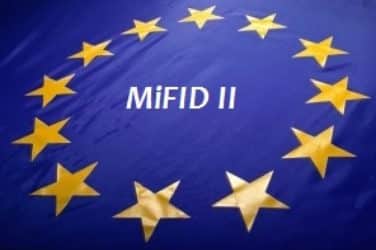
Octavio Marenzi, chief executive of consultancy Opimas, has warned that trading may shift away from the European Union after new regulations come into force in the region at the start of next year.
MiFID II, which goes live in January 2018 includes new requirements such as pre-trade transparency, post-trade reporting, restrictions on volumes in dark pools and the unbundling of research payments from trading commissions.

Octavio Marenzi, Opimas
Marenzi told Markets Media: “I have not heard a single investment firm saying the new regulations are great. They will be looking to sidestep the requirements.”
Broker crossing networks are prohibited under MiFID II, and instead all firms committing capital to trades have to use systematic internalisers. EU authorised investment firms will be classified as SIs for a financial instrument where they deal on their own account, over the counter, on an organised, frequent and systematic, and substantial basis in that instrument. These thresholds are based are on trading data for individual instruments which are set by the European Securities and Markets Authority.
Under the original legislation MiFID II systematic internalisers did not have requirements for a minimum tick size and there were concerns they could post quotes inside the spread on multilateral trading facilities and regulated markets. This week Esma launched a public consultation to close this loophole.
The regulator said in a statement: “A competitive disadvantage would be created for trading venues compared to SIs if only on-venue orders and quotes have to comply with the minimum tick size regime. This could result in volumes currently traded on trading venues moving to OTC execution.”
Despite the consultation, Marenzi said a shift of 15% to 25% of trading volumes away from exchanges to SIs is still possible. He continued that the shift of volumes sway from the EU will take place gradually over three to five years as US broker dealers work to attract these flows.
“At the moment ADRs in New York are traded in dollars but it is possible they could be traded in sterling or euros,” he added. American Depositary Receipts allow overseas shares to be traded on an exchange just like any domestic stock.
Steve Grob, director of group strategy at Fidessa, said in a blog that the consultation points to fundamental flaws in how the regulators have approached the task of improving on MiFID I.
“At the heart of the problem is the seemingly deep-rooted belief that trading on lit markets is somehow good whilst trading away from exchanges is inherently bad,” added Grob. “If I can get a better price from an SI in the size I want, then what actually is the problem either for me or my client?”
Grob continued it was also a gross oversimplification for regulators io assume that all other markets, such as fixed income, can be made to work like equities.
“To any market practitioner this is like saying nuclear energy is no different from solar panels, as they’re just different forms of power generation,” said Grob. “So despite its huge size, and the enormous cost of compliance, I expect that we will see an endless series of loopholes being defined and closed as these facts eventually become apparent to the lawmakers.”
In a report, MIFID II – Unintended Consequences, Opimas also said it was aware of a number of banks that are in discussions about setting up a system referred to as an indicative liquidity display platform in Jersey to avoid MiFID II requirements.
“This platform would not act as a trade execution platform, but would allow banks to exchange indications of interest that could then be executed on an MTF or over-the-counter,” added Opimas. “Naturally, this depends on Jersey’s decision on whether to seek equivalence under MiFID II. Even if this initiative does not go forward, we expect to see similar approaches broached in order to sidestep MiFID II.”




